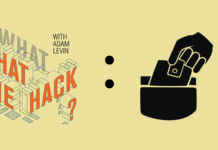
Imagine a 9-year-old swimming in credit card debt. Or a 13-year-old being hounded by bill collectors. Sound ridiculous? Well these are very real scenarios.
It turns out adults the only demographic credit fraudsters threaten. Even children are at risk of having their identity stolen. In fact, child identity theft impacts 1 in 40 households with children under the age of 18, according to a 2012 survey by Javelin.
Children’s credit reports are especially appealing to credit thieves, because minors’ credit reports typically aren’t used, so new accounts and delinquency marks can go unnoticed for months or years. And because fraudsters know they can get away with scamming a youngster’s credit longer, they can open more accounts.
Moreover, according to the Federal Trade Commission, of the more than 410,000 identity theft complaints made in 2015, 5% targeted individuals aged 19 and under. And all they need is a Social Security number and their name.
Fraudsters get these Social Security numbers using a variety of avenues, including medical database breaches, school forms and paperwork or even family members. And a good indication your child’s credit is being used includes calls from debt collectors and credit offers in the mail in your child’s name.
So checking and possibly even monitoring your child’s credit report is something to consider. At the very latest, it’s a good idea to check by your child’s 16th birthday. This will allow enough time to remove any fraudulent information from the file before your child turns 18 and could need a clean credit report in order to get a credit card or a private student loan.
You can also consider freezing your child’s credit as an extra measure of protection. Some states even allow you to freeze their credit for free.
Paying attention to your child’s credit report before they come of age will prevent any surprising disappointment when they’re rejected for applications as an adult. And while you’re at it, checking your own credit regularly can help you stay on top of whether there’s any fraudulent activity taking place on your own report. You can get a free credit report snapshot, updated monthly, on Credit.com.
This article originally appeared on Credit.com and was written by James LaDue.










